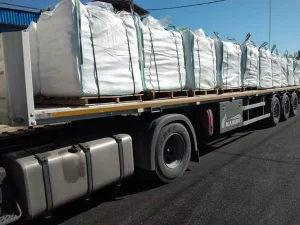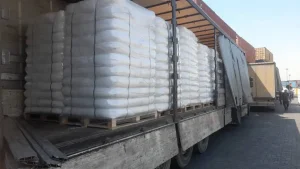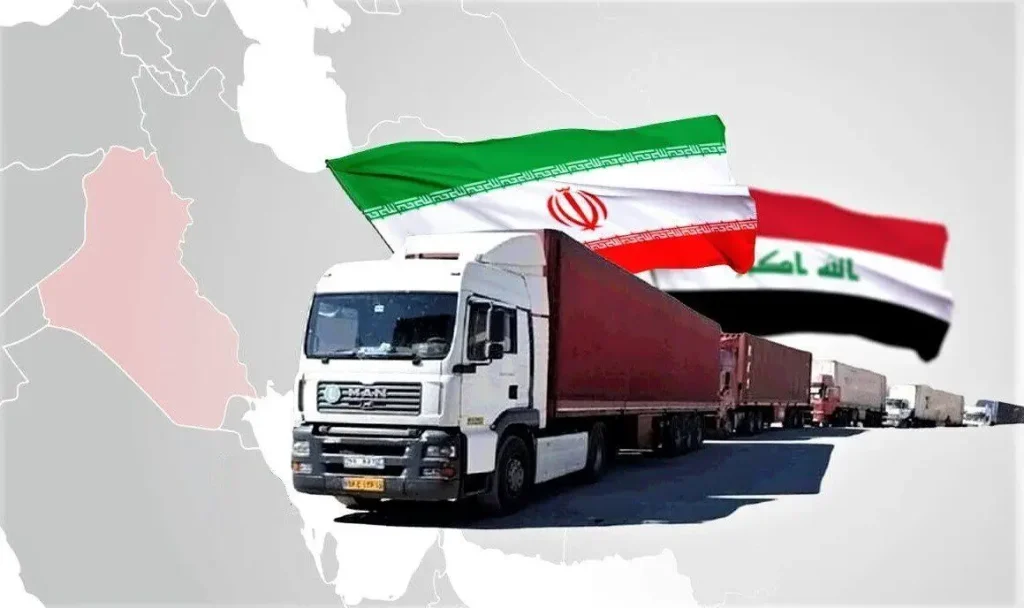Exporting Plastic Raw Materials to Iraq
Introduction
Iran, as one of the largest producers of polymer materials in the Middle East, plays an important role in meeting the needs of neighboring countries. Iraq is considered one of the main markets for the export of Iranian polymer materials due to its geographical proximity, extensive political and economic relations with Iran, as well as the lack of domestic petrochemical infrastructure. In recent years, a large volume of polyethylene, polypropylene and other petrochemical products have been exported from Iran to Iraq, and this trend continues to grow.
Iran-Iraq Relations
Trade relations between Iran and Iraq have been constantly developing over the past two decades. As Iran’s second export destination after China, Iraq supplies a large part of its consumer and industrial goods from Iran. Chemicals, construction materials, food products, and especially petrochemical and polymer products have a significant share in these exchanges.
Conditions for Exporting Plastic Raw Materials to Iraq
Exporting plastic raw materials to Iraq is relatively easy; Because this country has preferential tariffs for Iranian goods and the clearance process at the borders is carried out more quickly. Most exports are made through land borders such as Mehran, Khosravi and Shalamcheh, which makes exports cost-effective for Iranian manufacturers and traders due to the short route and reduced transportation costs.
An important point in exporting plastic raw materials to Iraq is to pay attention to product quality, packaging standards and timely delivery. Iraqi customers usually attach special importance to quality and price stability.
High-demand Grades of Plastic Raw Materials
in Iraq
In the Iraqi market, there is the greatest demand for high-use and functional grades, which are mainly used in the packaging, construction and plastic product manufacturing industries. The most important of them are:
High-density polyethylene (HDPE injection molding, blown, and film grades)
- High-use grades: HDPE F7000, HDPE 54B04, HDPE 6200
- Applications: Shopping bags, bottles, plastic containers, water pipes
Light-weight polyethylene (LDPE Film)
- High-use grades: LDPE 2420D, LDPE 2520E22, LDPE 2420H
- Applications: Commodity packaging films, agricultural protective nylons, food packaging films
Linear lightweight polyethylene (Rotomolding molding and LLDPE Film Rotomolding grades)
- High-use grades: LLDPE 209AA, LLDPE 22B03, LLDPE 22B02KJ
- Applications: Stretch film, industrial packaging, tankers Plastic
Polypropylene (PP Homo & Co-Polymer)
- Highly used grades: PP Z30S, PP X30S, PP RP120G
- Application: Plastic household appliances, automotive parts, packaging containers
It is worth noting that due to high demand in the domestic market, polypropylene and polyethylene terephthalate are not exported.

Does Iraq have petrochemicals?
Iraq has huge oil and gas reserves, but the country’s petrochemical industry has not developed much due to years of war and a lack of foreign investment. Currently, polymer production capacity in Iraq is very limited and depends mostly on imports. This makes it much more economical for Iraqi manufacturers and traders to buy polymer materials from Iran than domestic production or imports from distant countries.
International transportation routes between Iran and Iraq
The ways of transporting goods for exporting plastic raw materials to Iraq are diverse, but mainly include:
Road transport
- The most widely used method of exporting to Iraq
- Short route, lower cost, high speed
- Suitable for small and medium-sized shipments
Rail transport
- It is developing at some borders, such as Shalamcheh.
- Cost-effective for future bulk shipments
Sea Freight
- Via Imam Khomeini Port to Umm Qasr Port
- Suitable for bulk goods, but more time-consuming than land transportation
In general, land transportation is the best and most widely used method of exporting polymer materials to Iraq due to its speed and lower cost.

What do Iraqi traders care about?
The features that are most important to Iraqi buyers and traders:
- Price stability and transparency
- Quality and standardization of grades
- Appropriate packaging (palletizing, appropriate film)
- Fast delivery and adherence to schedule
- Possibility of purchasing in various volumes (from small shipments to high tonnage)
From which countries does Iraq import plastic raw materials?
In addition to Iran, Iraq also supplies part of its needs from other countries:
- Turkey (due to geographical proximity)
- Saudi Arabia and Kuwait (export of polyethylene and polypropylene)
- UAE (as a trade intermediary center)
- China (for some low-cost grades)
However, due to its location advantage and competitive price, Iran is still considered the main supplier to Iraq.
The state of the plastic industry in Iraq
The plastic industry in Iraq is in a growth and development stage. Although it has not yet reached the level of neighboring countries, per capita consumption of plastic products is increasing. Factories producing plastic bags, polyethylene pipes and packaging products are expanding. This is increasing the demand for plastic raw materials day by day.
Conclusion
As one of Iran’s largest export destinations, Iraq is a very suitable market for selling plastic raw materials. The lack of domestic production capacity, the growing need of the plastic industry, geographical proximity and preferential tariffs have all provided a golden opportunity for Iranian traders and manufacturers. The future of plastic raw material exports to Iraq is very bright, given the growing demand trend.
Contact Afshin Karami Trading Company (Avan Zar Tejarat Pishro)
Our trading company, with extensive experience in supplying and exporting plastic raw materials to Iraq, including various grades of heavy, light and linear polyethylene, in various types of injection, blow, extrusion, and film production, is ready to provide the best services to Iraqi manufacturers and traders. If you are planning to purchase or cooperate in the field of exporting plastic raw materials to Iraq, contact our experts today.
